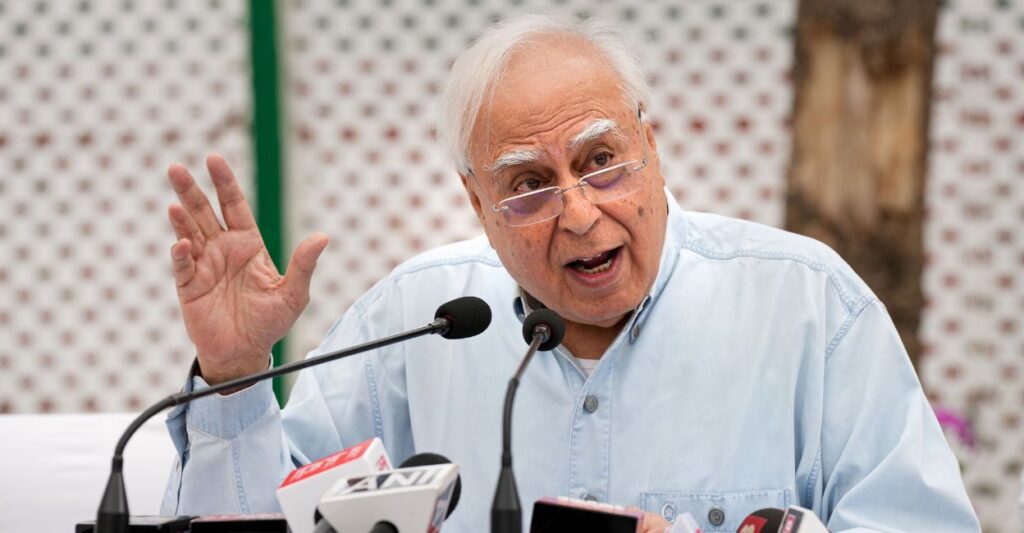Radhika Mittal
Senior Advocate Kapil Sibal, a prominent figure in the Indian legal landscape and President of the Supreme Court Bar Association, recently delivered a compelling lecture at the Sikkim Judicial Academy, where he addressed critical issues surrounding the independence of the judiciary in India. His remarks focused on the implications of the current judicial appointment system, particularly the Collegium system, which he argues has led to a pervasive atmosphere of fear among judges, particularly in subordinate courts.
Sibal expressed grave concerns regarding the centralization of power within the judiciary, asserting that it has not only compromised judicial independence but has also fostered an environment where judges are reluctant to make decisions that could jeopardize their career prospects. He pointed out that judges at the District Llevel often feel compelled to align their rulings with the preferences of High Court judges, fearing that unfavorable decisions could hinder their chances for promotion or lead to undesirable transfers. This dynamic creates a chilling effect on their ability to dispense justice impartially.
During his address, Sibal referenced the cases of Justices S. Muralidhar and Akil Kureshi, who faced transfers after making decisions that were perceived as controversial. He argued that such instances illustrate a broader trend where subordinate judges are wary of granting bail or making bold rulings due to fears of repercussions from higher judicial authorities. “Bail is the rule and denial is an exception,” he noted, questioning why many subordinate courts hesitate to grant bail. This reluctance, he suggested, stems from concerns about being labeled as biased or politically motivated.
Sibal’s critique extended to the Collegium System itself, which was designed to insulate judicial appointments from political influence. He highlighted that while this system was intended to enhance judicial independence, it has inadvertently resulted in High Court judges exerting significant control over their subordinate counterparts. “The ground reality we all know is that within the subordinate judiciary, there is very little space left for judges to take decisions,” he stated, emphasizing that this situation undermines the foundational principles of justice.
Moreover, Sibal called for urgent reforms in the judicial appointment process. He advocated for a more transparent and merit-based system that would reduce the influence of personal relationships and political affiliations in judicial appointments. He stressed that without such reforms, true independence within the judiciary will remain elusive. “As long as you have a center of power vested in a particular institution controlling subordinate courts, you will not achieve the independence we seek,” he asserted.
In conclusion, Sibal’s remarks underscore a critical need for systemic change within India’s judicial framework. He emphasized that restoring confidence in the judiciary requires addressing these entrenched issues and ensuring that judges can operate free from fear or favor. The call for reform reflects a broader recognition of the necessity for an independent judiciary that can uphold justice without external pressures influencing its decisions.

